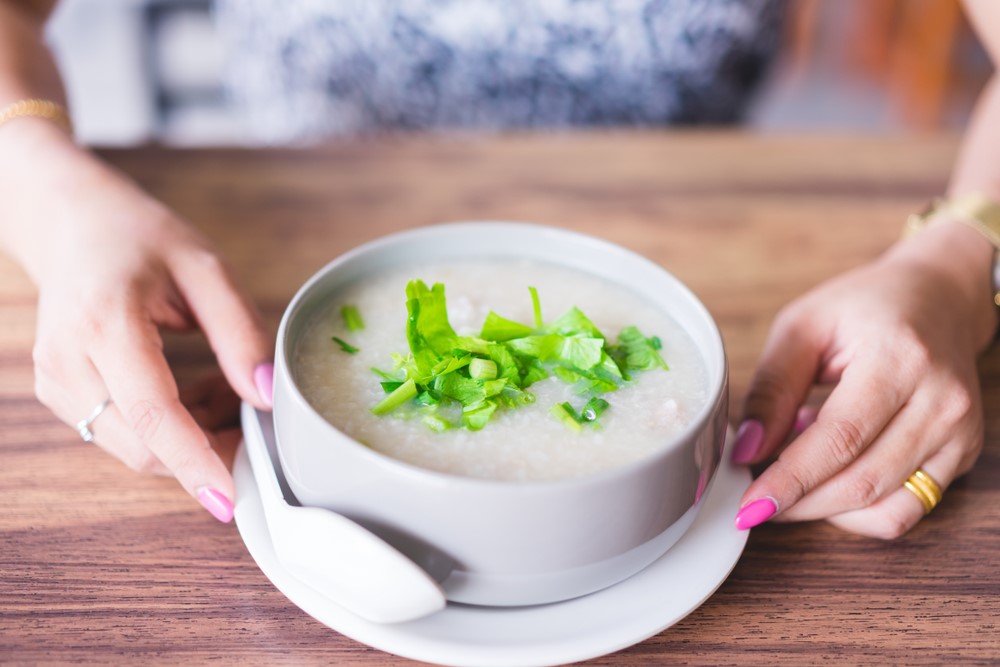
Losing some teeth, all your teeth, or wearing dentures can make eating that much more difficult. Seniors in this position need to choose their foods much more carefully.
While there are plenty of foods for seniors with no teeth, it’s also too easy to get in a rut with eating. After all, most recommendations include foods like scrambled eggs, pureed vegetables, and yogurt – dishes that quickly get boring.
In this list, we’re looking at more interesting meals for elderly with no teeth. These are full dishes that have plenty going for them. They’re often packed with flavor and nutrients, while looking fantastic on the plate as well.
While these meals are an excellent starting point, please also talk to the senior’s doctor (and any specialists) about what they can and cannot eat.
There may be additional things to think about, such as which textures are safe to swallow. Checking in is a good practice anyway, as needs can vary dramatically.
Our Top Meals for Elderly with No Teeth
Ven Pongal
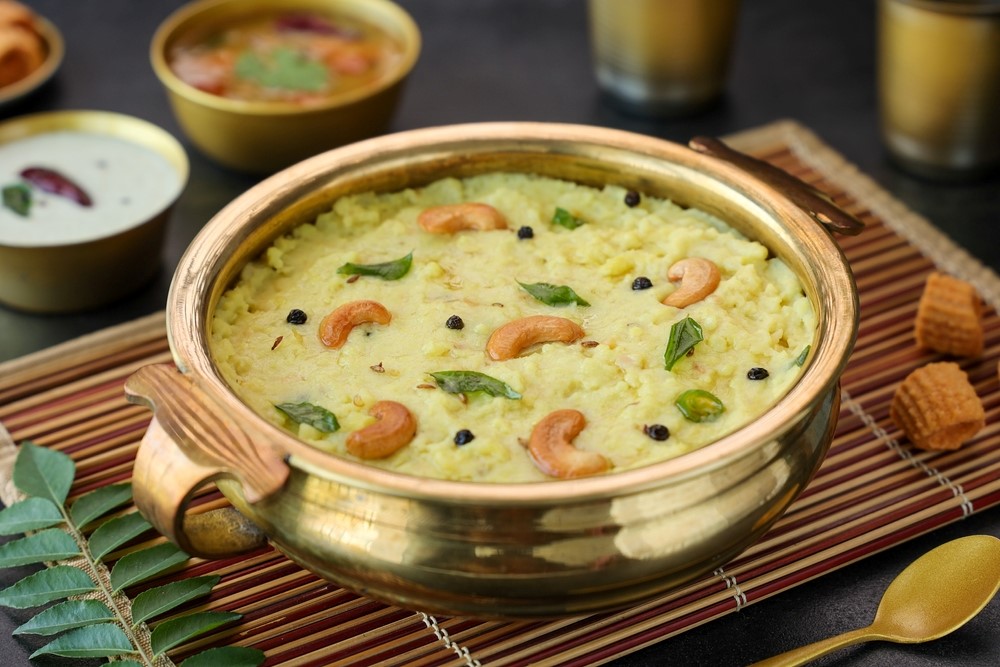
This is a traditional dish from South India. It relies on rice, split yellow mung dal, ghee, and plenty of spices.
Now, rice and lentils might sound like an odd choice, but both ingredients end up very soft when they’re cooked for long enough. This is exactly what you can do with Ven Pongal.
The spices make this dish much more interesting than many other meals for elderly with no teeth.
You could experiment with other ethnic dishes as well. Many grain or lentil based ones will be naturally soft or can be made soft without much effort.
Lentil Soup
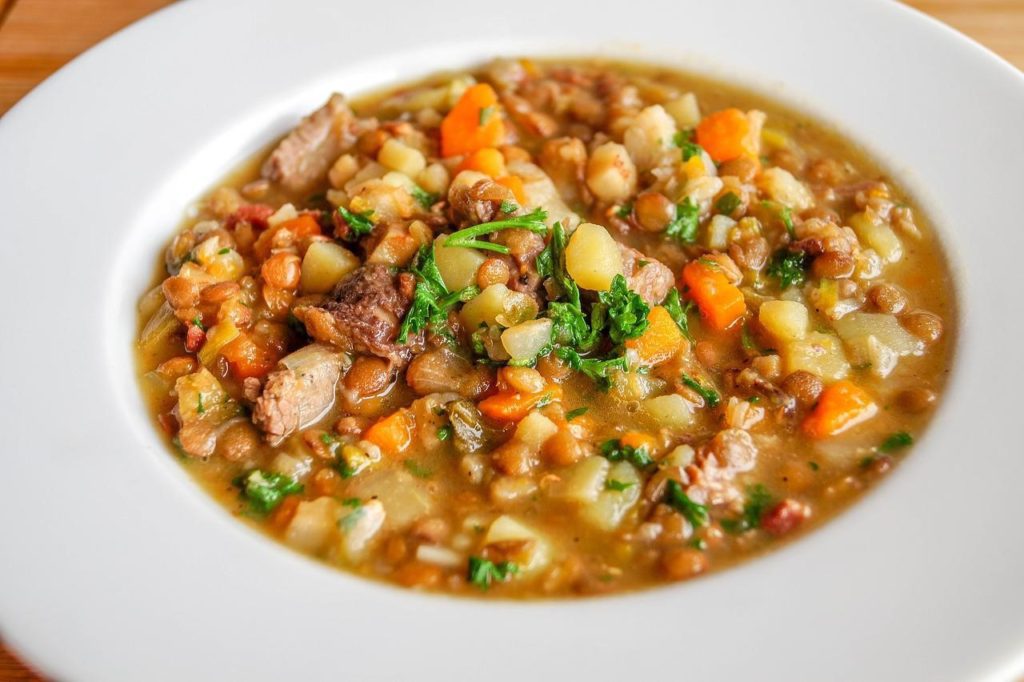
Speaking of lentils, how about making lentil soup? The lentils add some much needed heartiness to the soup, making it filling without requiring any meat at all.
There are plenty of versions to experiment with too, with an endless range of flavor profiles. For example, this lemony lentil soup is perfect if you want something slightly unusual.
As long as you cook the lentils for long enough, they should be very soft. You can then choose whether to serve them as-is or blend the soup to give it a creamier consistency.
Red Lentil Dahl
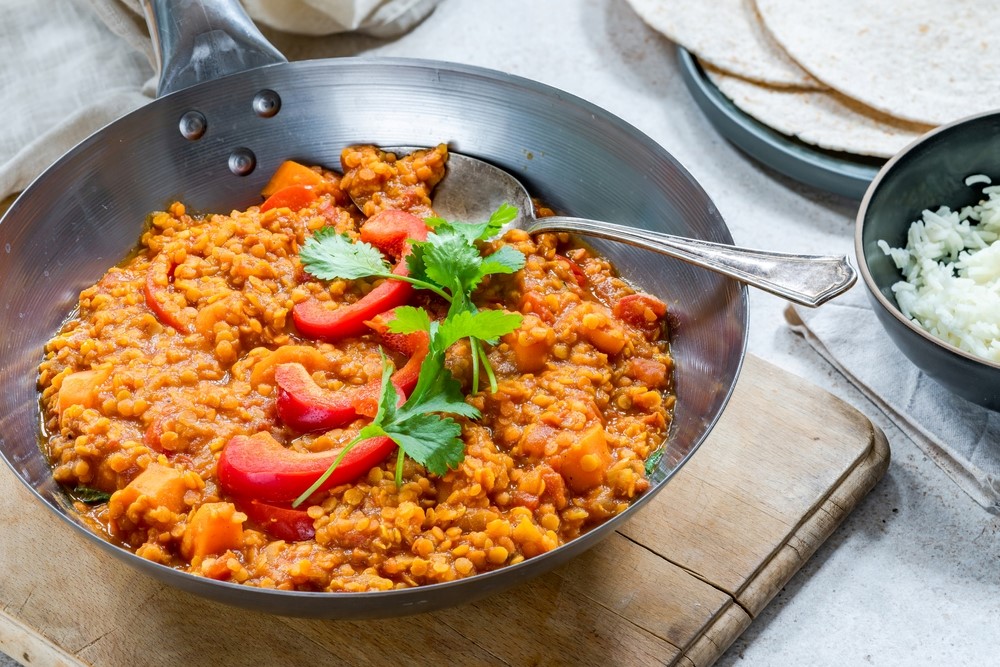
Here’s one more lentil meal to try out. Red lentil dahl is a flavor packed dish that uses lentils as the main source of nutrients and protein.
Most of the other ingredients provide flavor or creaminess to the dahl. For seniors with no teeth, you simply need to make sure the lentils have been cooked until they are very soft.
You will still need to double check any recipe that you use, just to make sure there are no unexpected ingredients.
A Soft Food Protein Bowl
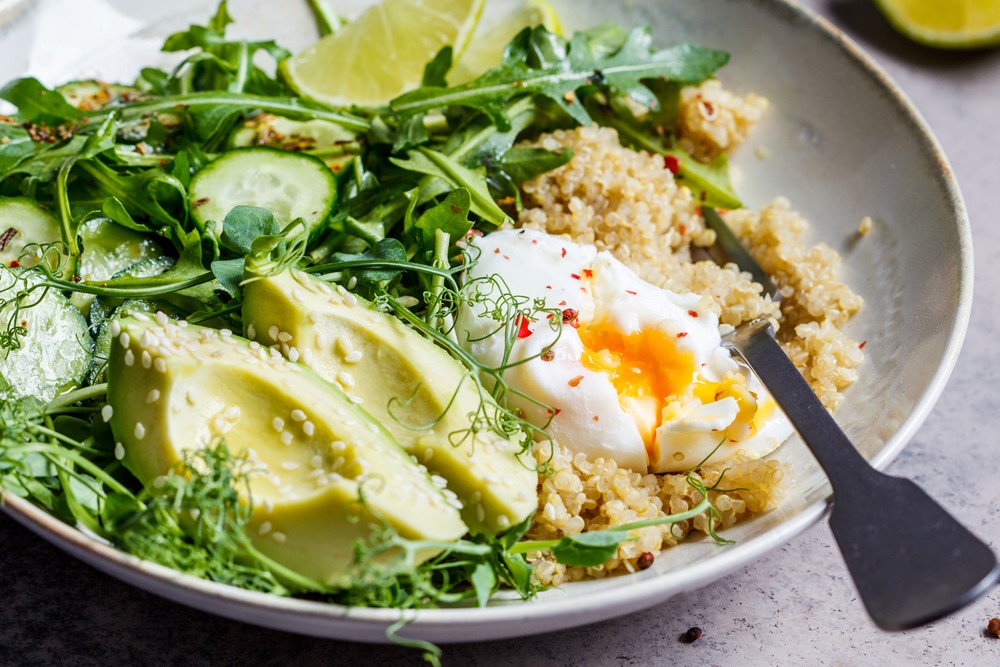
Protein bowls (or Buddha bowls) have become popular for increasing protein intake. The bowls often start with a starch layer, like rice, couscous, or quinoa. This is then topped with a variety of healthy ingredients.
Protein bowls normally include a variety of textures. But, you could easily make one that focuses on soft foods instead, including toppings like scrambled eggs, steamed vegetables, dahl, avocado, and hummus.
Soups
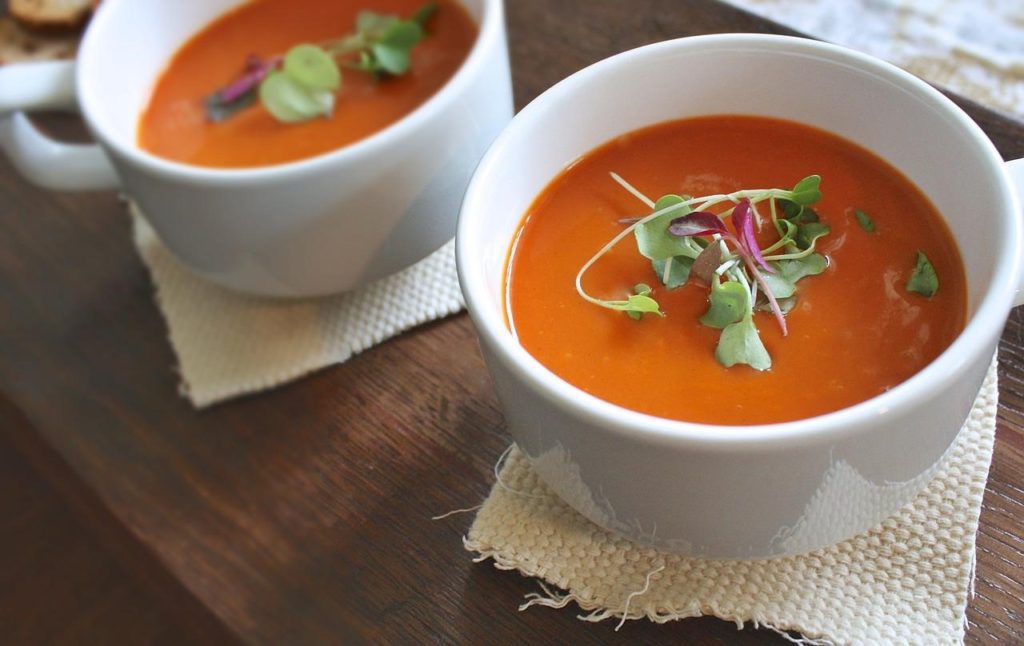
We could easily create an entire post about nothing but soup. After all, any chunks in your soup are generally soft and many soups are creamy or broth-based instead.
It’s worth thinking about the types of soup you’re going to make.
For example, broth-based soups can be great for hydrating, but many of them are fairly low in calories and protein. This isn’t ideal for seniors who are struggling to eat.
Sometimes you might even want to add some fat into a soup to increase the calorie levels.
Here’s a selection of soups to try. There are just a starting point, there are plenty of others out there. You could even grab a soup cookbook (like this one!) and start pouring through it for inspiration.
- Blended chicken soup. Chicken soup with veggies is often pretty soft, but it could be too much for some seniors. If this is the case, try blending it. The veggies should blend without any issue. Herbs and spices can be used to add flavor.
- Tomato basil soup is flavor packed and stands out against more watery soups.
- Broccoli cheese soup is another delicious option. The broccoli should be very soft after cooking anyway. You can also blend the soup to make it even easier to eat.
- Lasagna soup takes a bit of effort, but it’s a fun style. You can start with a regular meat sauce, then blend it and add some broth to thin it out. You should be able to use small pieces of very soft pasta as well. The finished soup is easier to eat than regular lasagna – and is just as delicious.
- Potato soup works well too, especially if you blend it.
- Butternut squash soup is ideal in the winter months, especially as the soup is bright orange and you’re getting plenty of flavor from the squash.
You may need to experiment to work out the best soup thickness and flavors for your family member. This is true for all meals for elderly with no teeth.
After all, people have different needs and flavor preferences. The perfect meal for one person might be awful for someone else.
Cheesy Buttery Grits
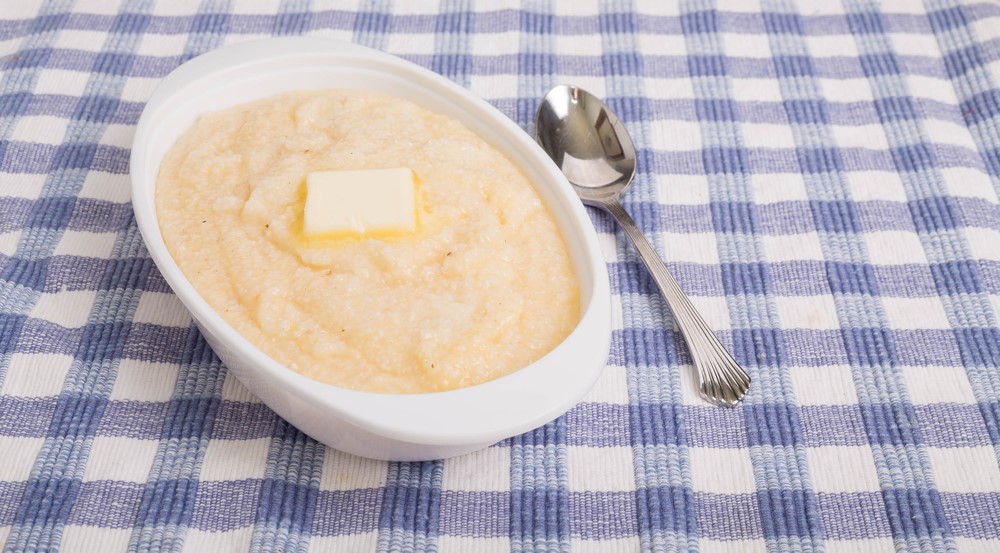
Grits are an easy choice. They tend to be soft already and they’re always popular.
Making them cheesy and buttery isn’t great for health, but you can still serve the dish as a treat every so often. Besides, sometimes the main goal is simply to get the senior to eat.
Upma
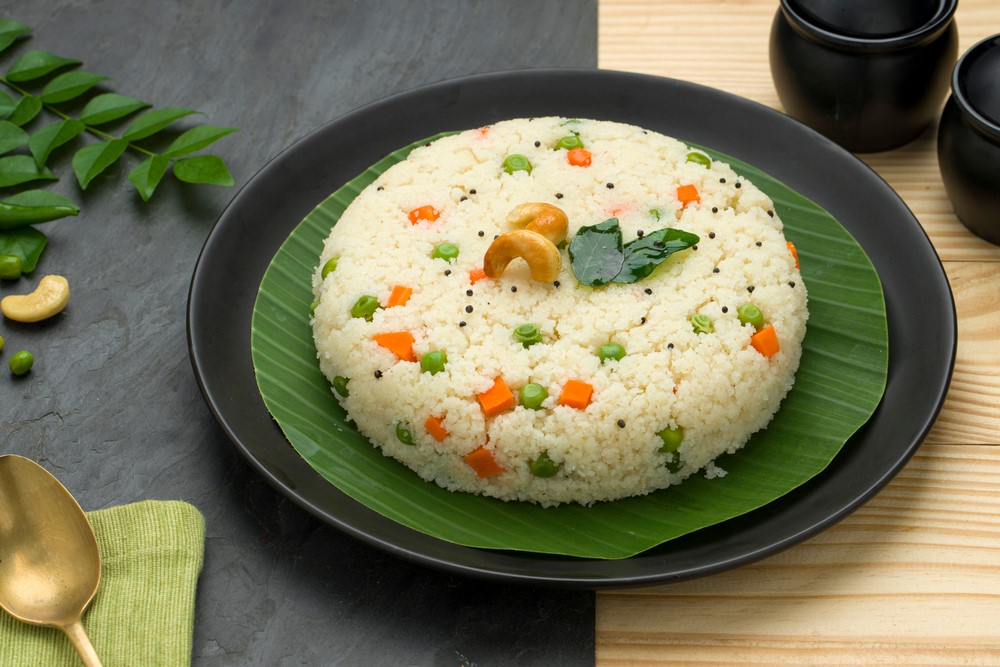
Upma is an Indian breakfast food. It’s a type of porridge, often cooked using semolina or rice flour.
However, upma is much more interesting than regular porridge, as it contains a variety of spices. These give it a rich flavor profile.
The flavor is particularly good for anyone with a decreased sense of taste.
Mashed Potatoes with Gravy
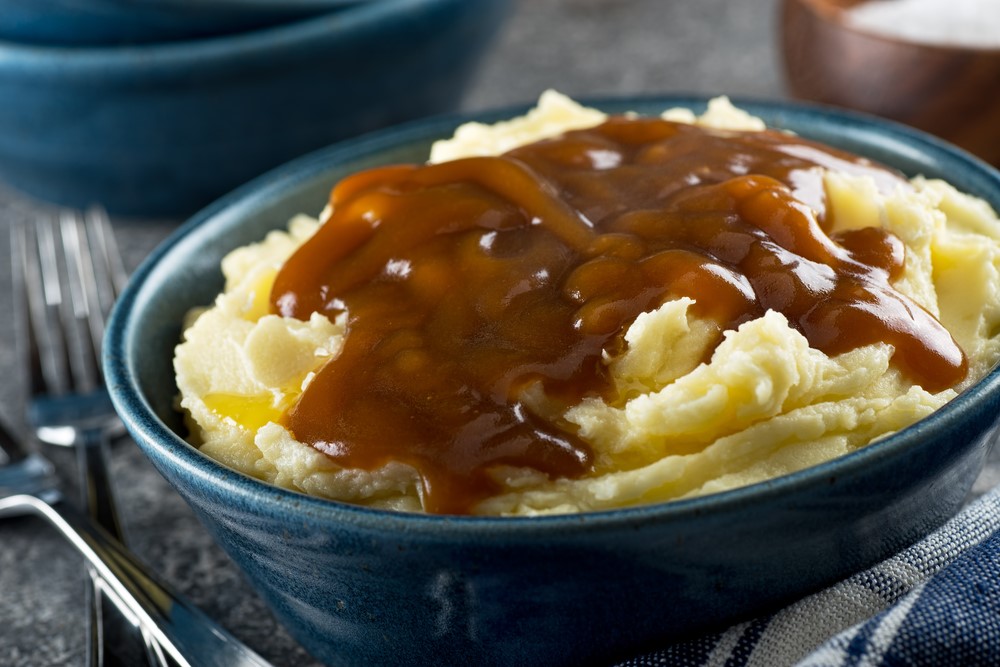
On their own, mashed potatoes are pretty dull. Add some delicious gravy and suddenly they’re amazing.
You don’t even need to use regular potatoes. Mashed sweet potatoes are delicious too and are a little more interesting. Or, why not experiment with mashed cauliflower?
Crustless Quiche
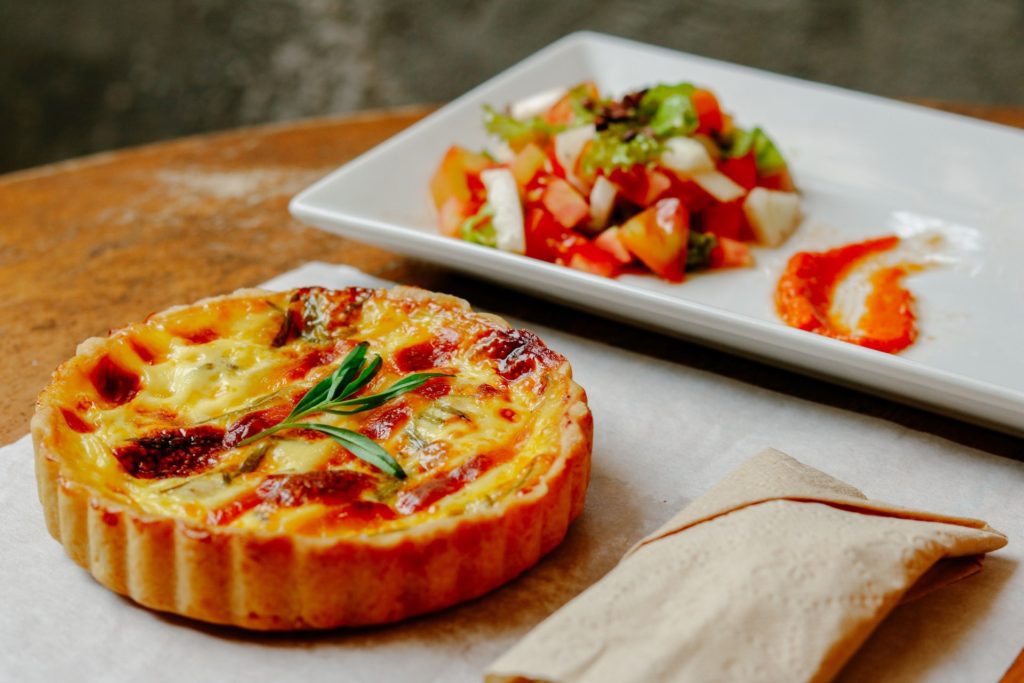
If you choose your ingredients well, then a crustless quiche will be soft enough for most people. If you’re uncertain, simply start off with a cheese quiche. This is delicious, soft, and creamy.
Quiches are also helpful because they can simply be picked up and eaten. There’s no need to worry about knives and forks.
Shepherd’s Pie
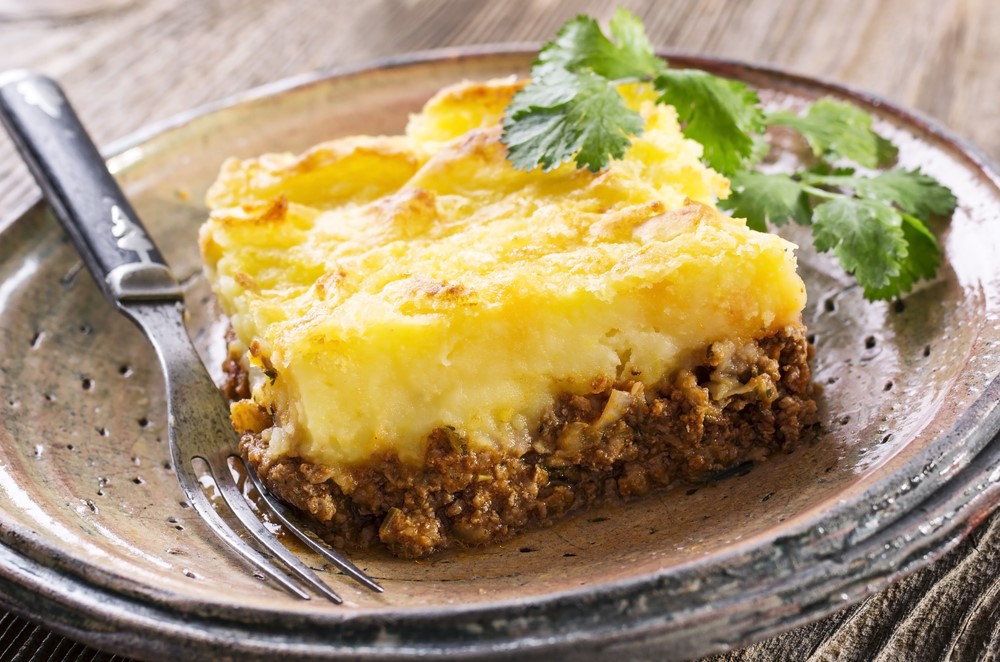
Shepherd’s pie is soft enough that many seniors can eat it without a problem. It’s also an excellent choice, as it provides plenty of protein and nutrients.
When preparing the dish, make sure that the meat and any other ingredients remain tender. Making sure the meat doesn’t dry out or get overcooked helps here.
Chinese Rice Porridge (Congee)
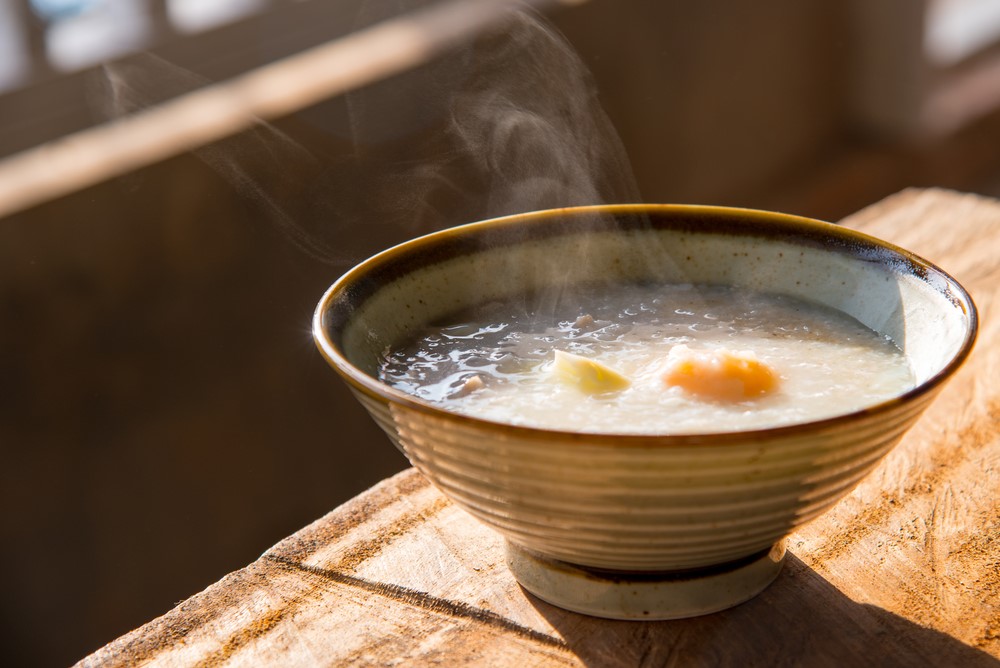
Congee looks like a bland rice dish, but this isn’t the case at all. Instead, the ingredients create a rich flavor that many people love.
The basic version of congee just relies on white rice. Some sauces, stock, and spices, so there aren’t any concerning ingredients.
Some versions add meat as well. These could be viable too, especially if you cut the eat up into tiny pieces.
Baked Fish
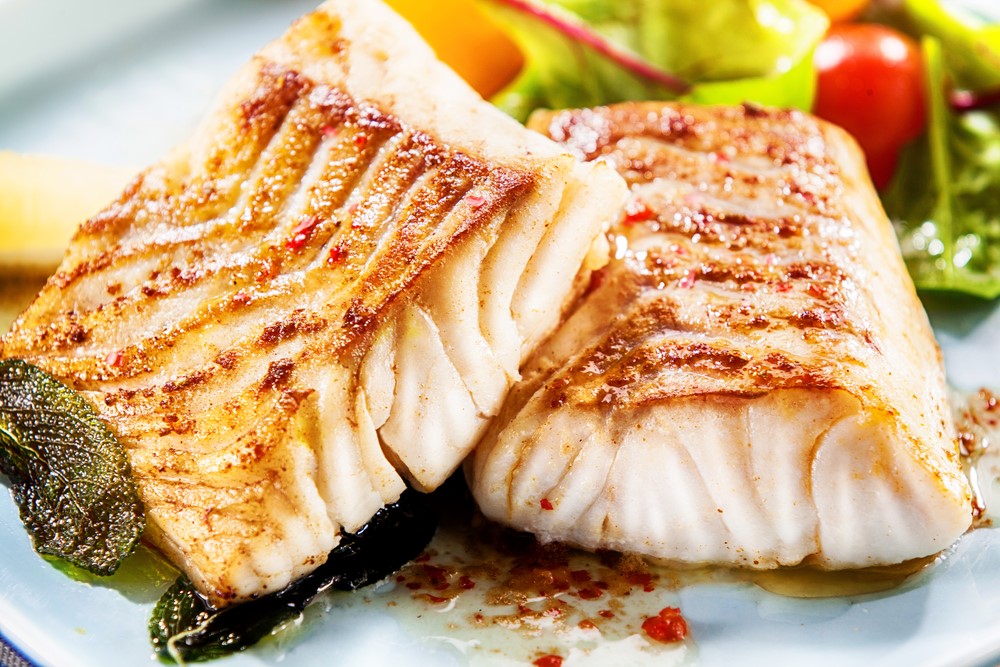
Like meat, fish is a fantastic source of protein and nutrients. Unlike meat, it’s also rich in omega 3 fatty acids and can be easy to eat.
Flaky fish is best for seniors without teeth. Cod and salmon work particularly well (they’re both delicious too).
The cooking method matters here. Make sure your technique doesn’t create crispy skin or the fish will get harder to eat. Also double check to make sure that all bones are removed.
Hyderabadi Haleem
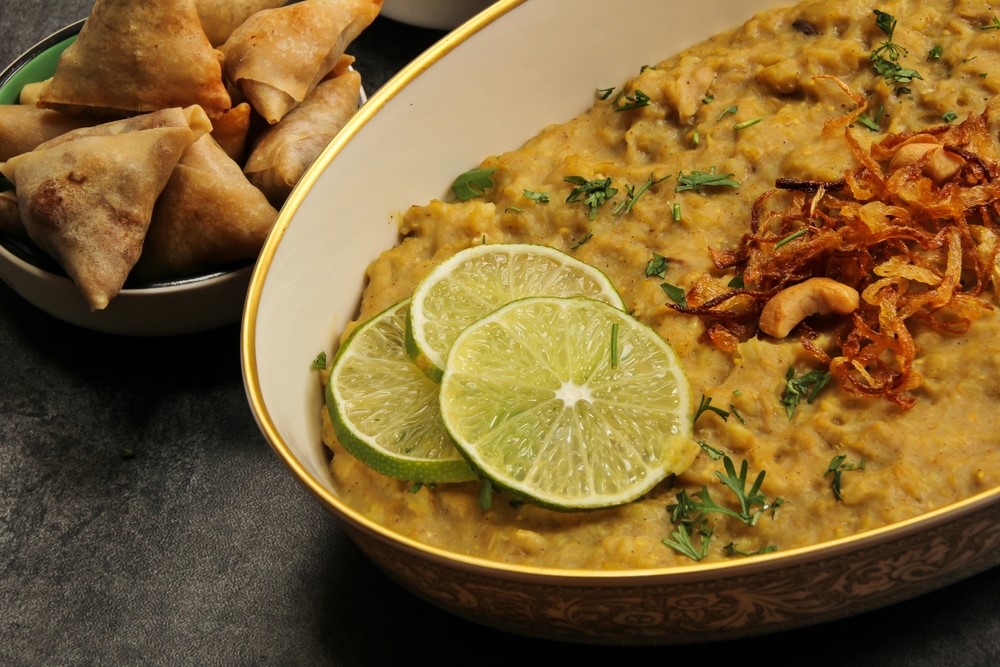
Haleem is a delicious one-pot meal that relies on meat, lentils, and wheat (there’s a fantastic recipe here).
Those ingredients are surprisingly useful, as they all end up soft when cooked well. Indeed, the steps involved in making Haleem should give you a soft, nutritious, and flavor packed dish every time.
Meals like this are particularly good for seniors who are bored with the same old meals.
Miso Soup With Soft Noodles
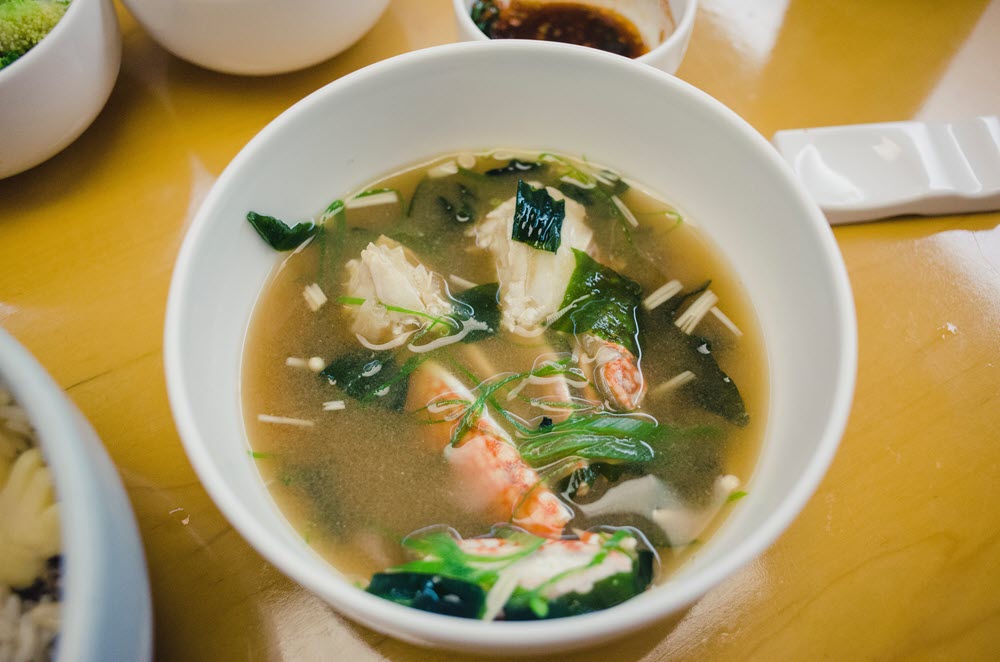
Miso soup is rich and thought to offer plenty of health benefits, making it one of the easiest meals for elderly with no teeth.
You can choose whether to include noodles or leave them out. Similarly, you can adjust the spice level of your dish so that it matches your preferences.
The biggest issue is the sodium content, as miso is a bit insane for sodium. You can buy lower sodium options, but most still contain a decent amount of sodium. The soup may simply be a no-go for seniors who must carefully watch sodium intake.
Feta Cheese Omelet
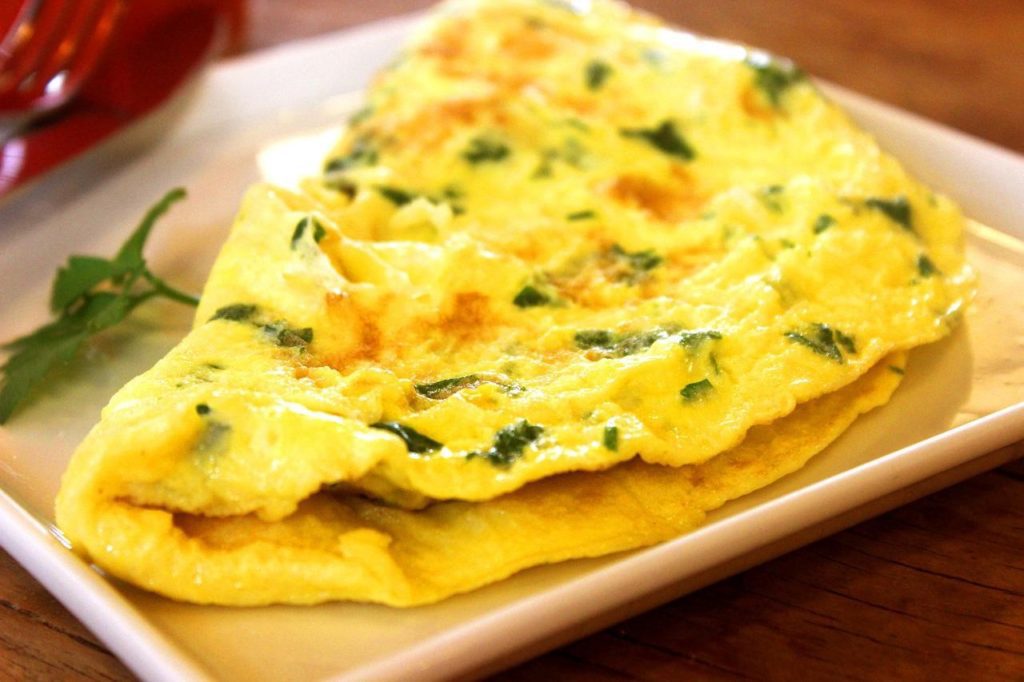
Scrambled eggs often feature on lists of meals for elderly with no teeth, but plenty of other egg recipes are soft as well.
Omelets are perfect, as there’s so much you can do to increase their flavor. One option is to add extra herbs and spices, along with some feta cheese.
You could sub out the feta for goat’s cheese or even just regular cheddar.
Korean Steamed Egg
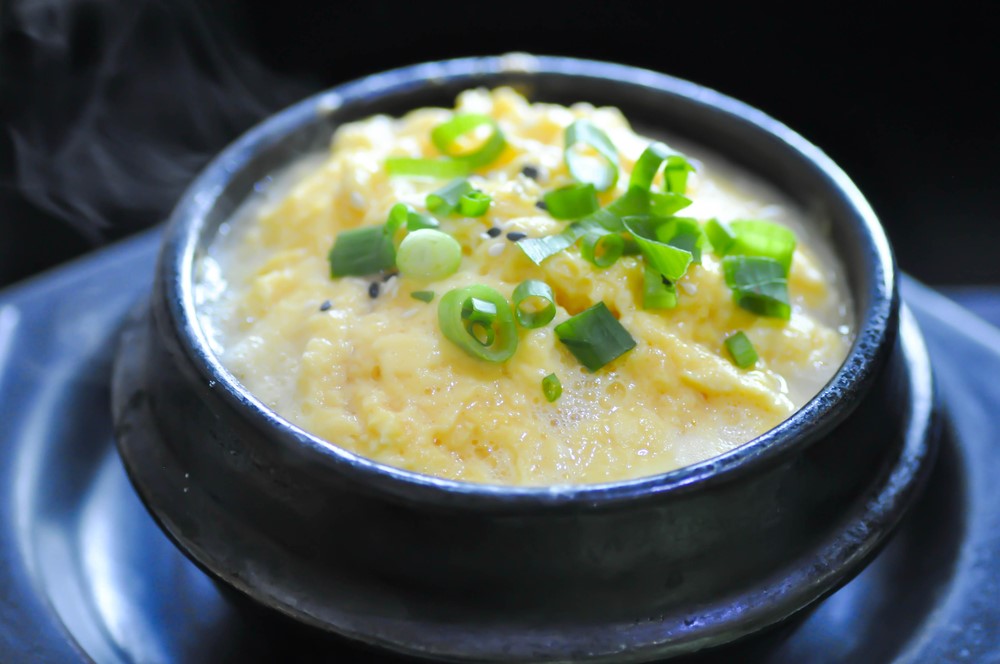
Speaking of eggs, here’s another delicious and soft dish to try. It is an egg custard dish that is often surprisingly flavorful and is also very nutritious.
Many Stews
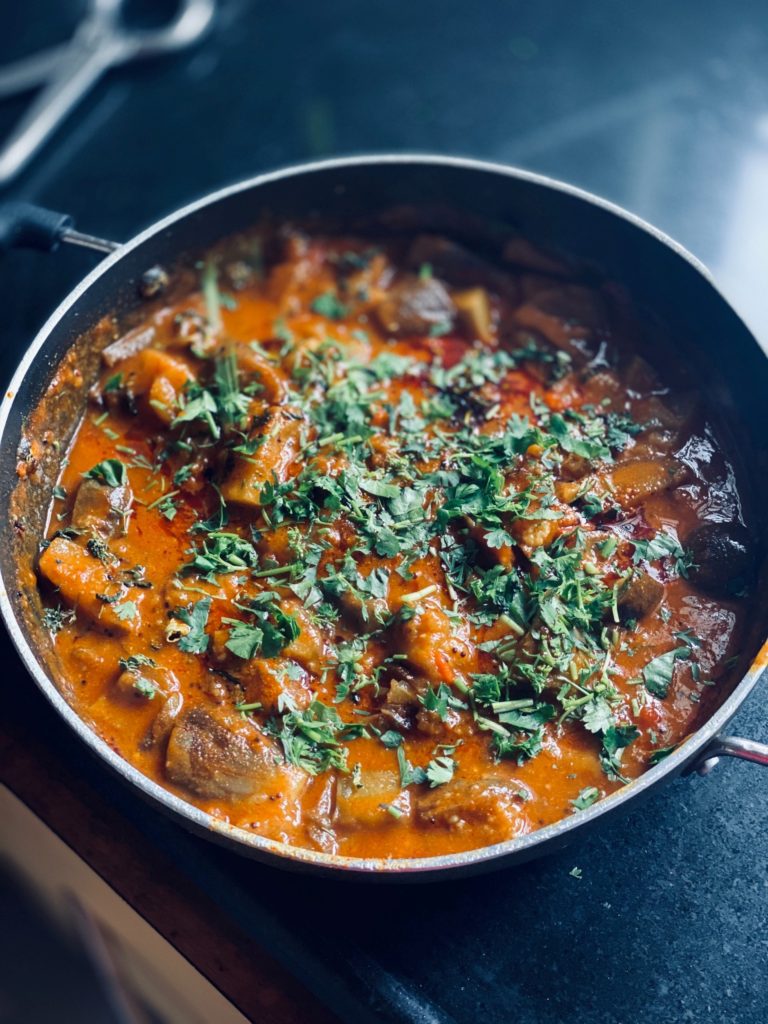
Stews can work surprisingly well too, as they often contain very soft meat and vegetables.
If they’re not soft enough on their own, you can try pureeing the stew. This is still very nutritious and is much easier to drink.
Alternatively, you could strain the stew and just serve the liquid (perhaps keeping the meat and veggies for yourself). After all, the liquid still has an amazing flavor and should be quite nutritious.
Slow Cooked Meat
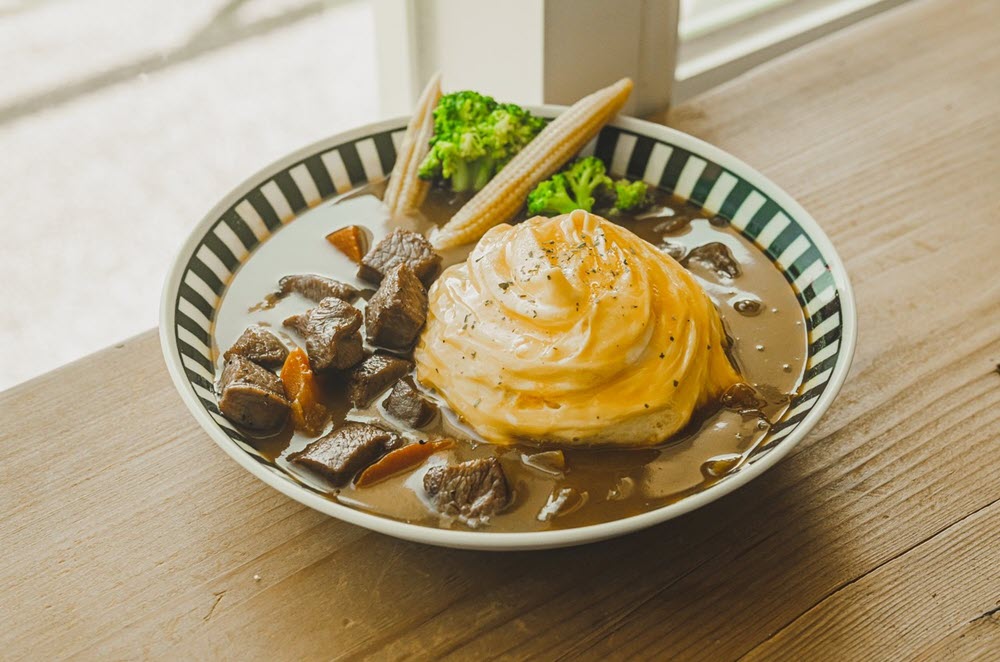
Similarly, slow cooked meat often works well. The slow cooker helps to make the meat very tender, while infusing it with plenty of flavor.
You may need to experiment with this one to find the right cuts of meats and cooking times.
For seniors who are still struggling, you could try cutting the meat into very small pieces or even try blending it.
Despite the difficulties of meat, it is an important ingredient for seniors – offering plenty of nutrients and protein.
Peanut Butter & Jelly Sandwich
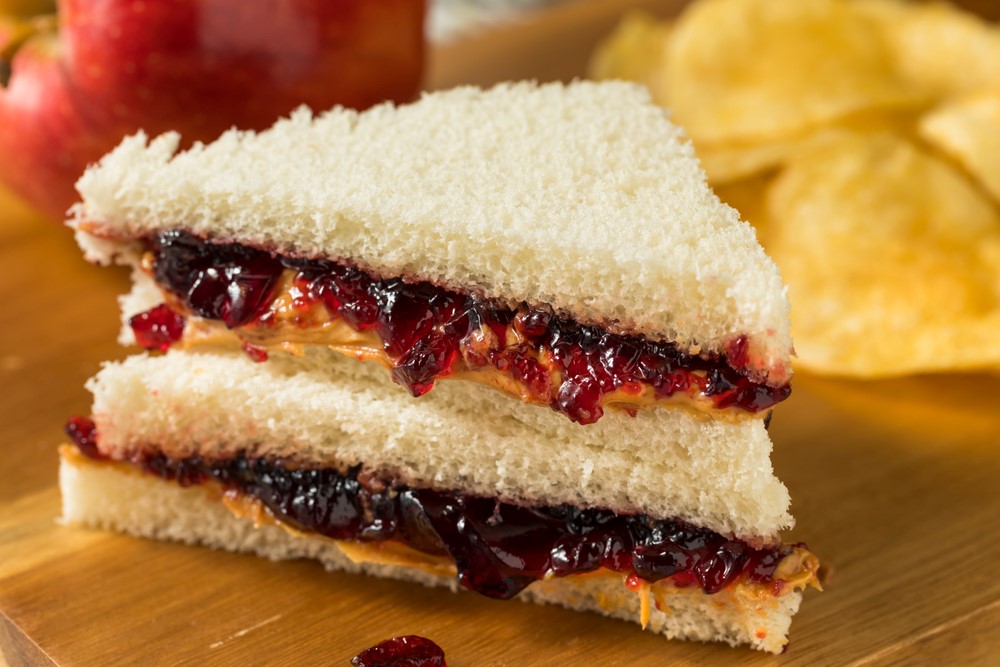
If you choose the bread and ingredients well, then sandwiches can be a viable choice.
First, you’re looking for soft bread. White bread is the safest option here, but some whole grain breads may be viable. Cutting the crust off helps too.
Peanut butter and jelly are both soft ingredients, making them an excellent choice. The peanuts even provide plenty of protein.
Just make sure that you look for smooth peanut butter with little added salt.
Egg Salad Sandwich
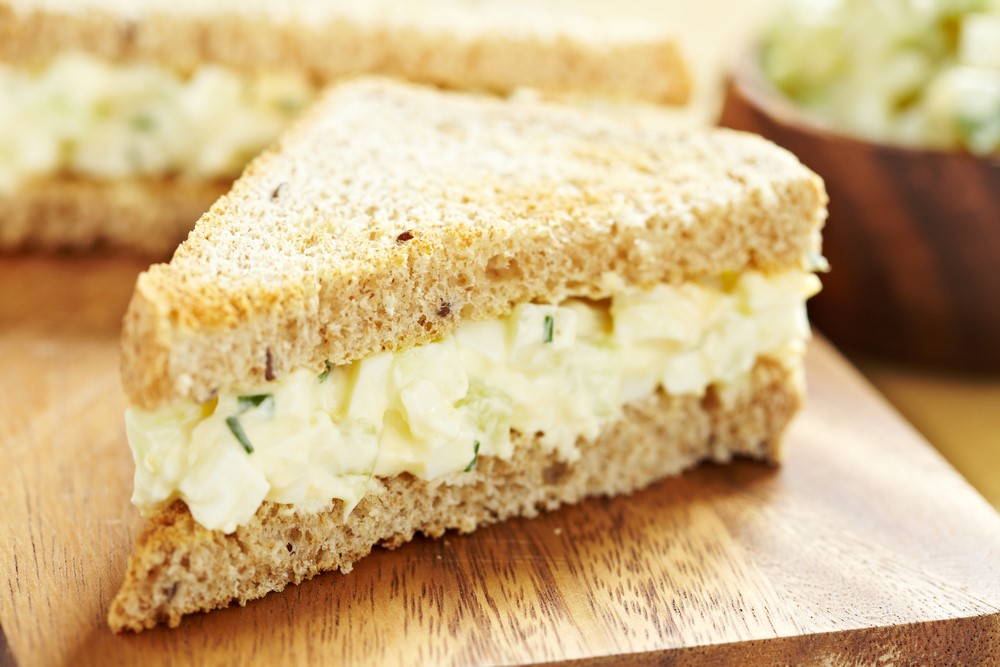
Egg salad is another soft sandwich filling. You can easily change this up too, like by adding a little curry powder or smoked paprika into the sandwich.
One cool thing is that sandwiches are familiar. They don’t feel like ‘old person’s’ food. They’re simply what everyone eats. This can be appealing for seniors struggling with the emotional side of losing their teeth.
Stuffed Potatoes
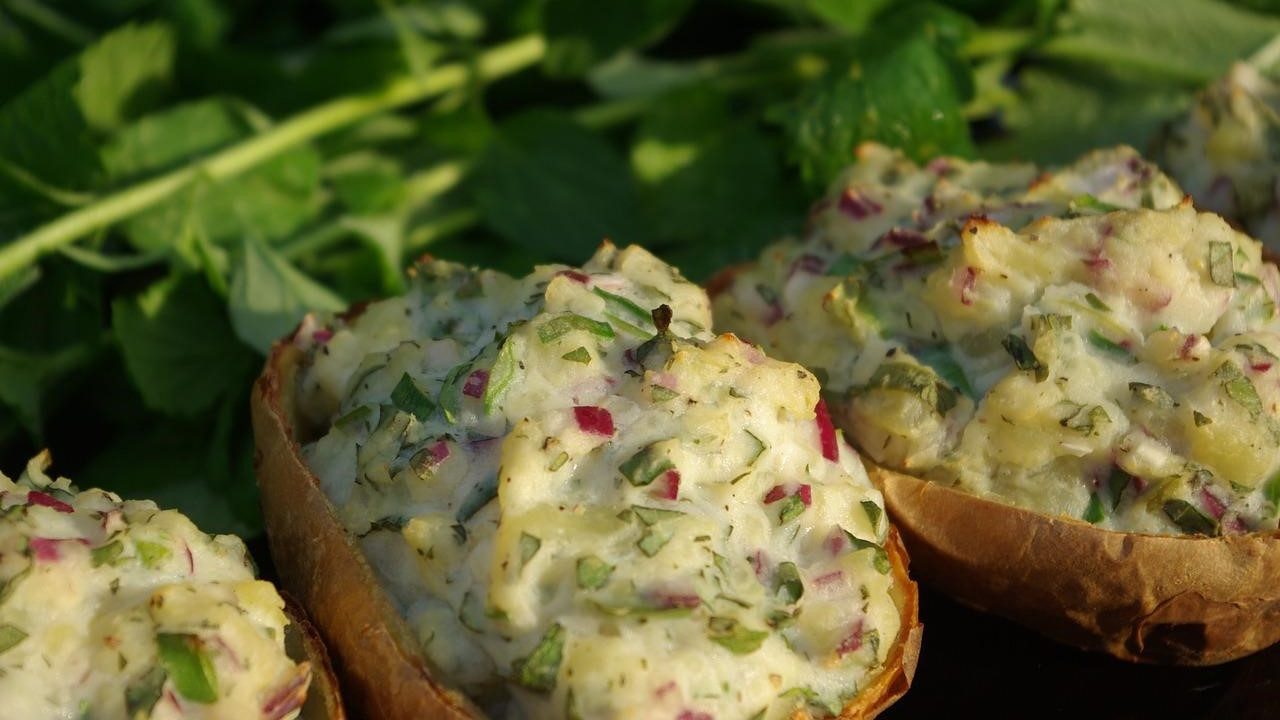
Stuffed potatoes (also called twice baked potatoes) are a few steps up from mashed potatoes, as they’re loaded with delicious ingredients, including cheese, chives, ham, spices, and more.
There are a few things to think about though.
First, your elderly family member probably can’t eat the skin. This will be too tough. But, they can easily just scoop the potato out using a spoon.
Second, you’ll need to keep the meal soft. This means avoiding any hard ingredients (like crispy bacon). Be careful about topping the potatoes with cheese too, as this can sometimes crisp up too much when the potatoes are in the oven.
Curries
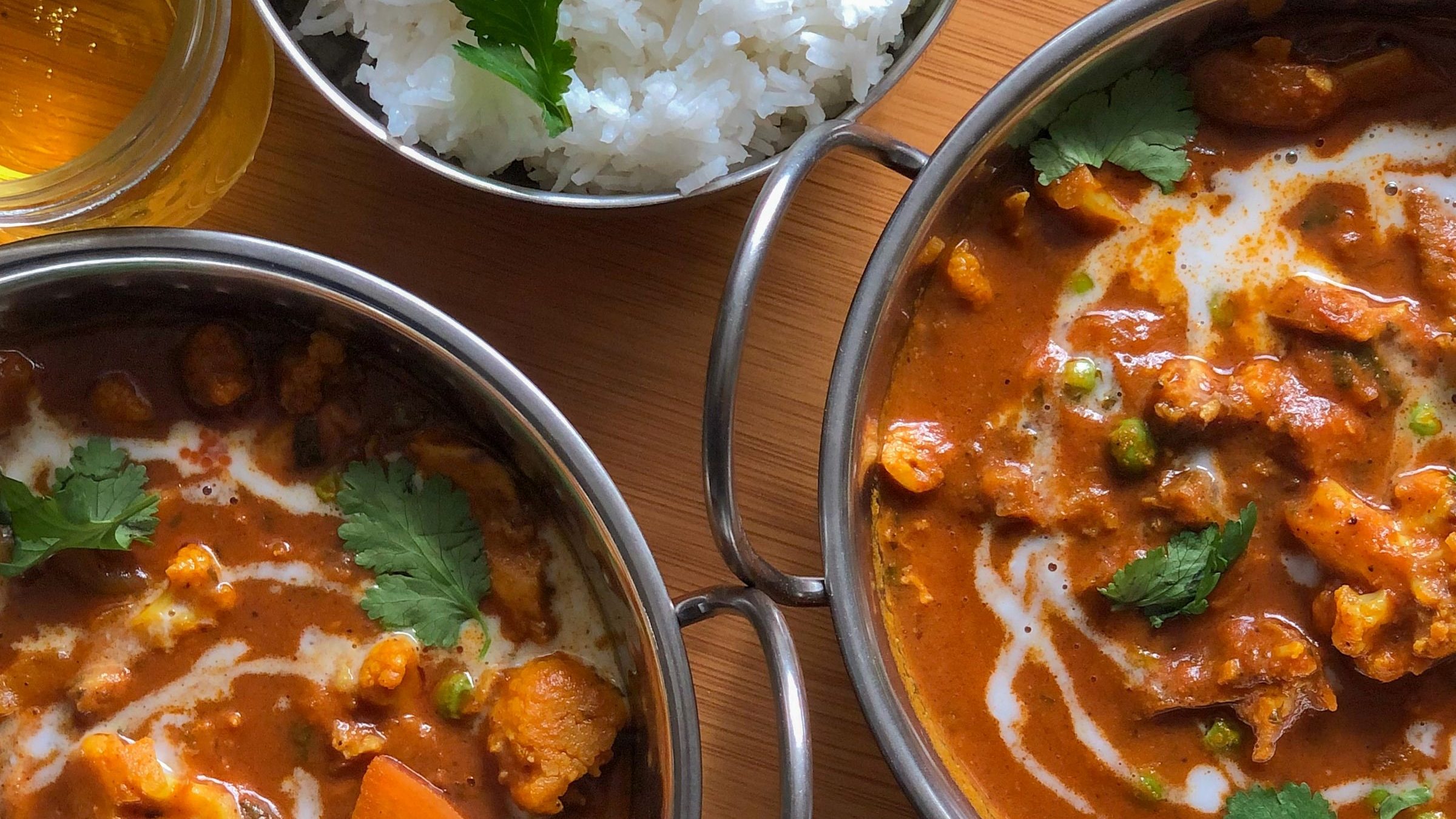
Curries tend to be cooked slowly, so they’re often soft to begin with.
You can make them even easier to eat by using tender cuts of meat and chopping the pieces more finely than you would otherwise.
You can even skip the meat entirely and use a plant-based ingredient. Lentils are particularly good as they get mushy when cooked for long enough.
Soft vegetables can work well too, like carrots and peas.
Bonus: Healthy Smoothies
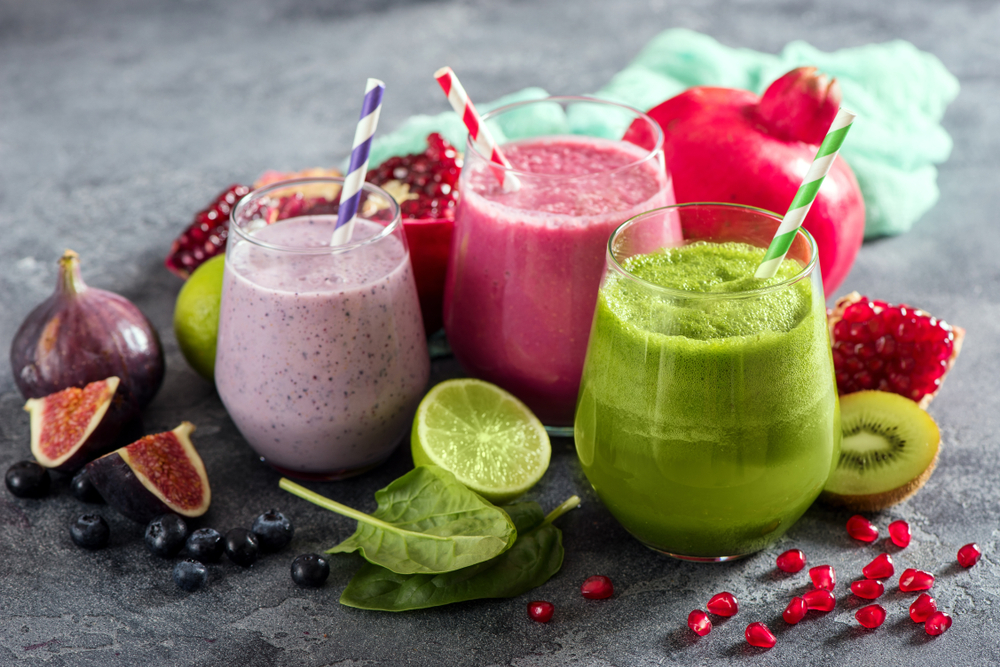
Then there are smoothies.
These are helpful, as they’re often tasty, are easy to drink, and can be packed with nutrients.
The healthiest smoothies are the ones you make at home based on the senior’s needs.
Here are some things to think about:
- Do they need a high calorie or a low calorie smoothie?
- Do they have any allergies?
- Are there ingredients to be cautious with (like vitamin K rich vegetables for people taking blood thinners)?
- The sugar content. It’s easy to go overboard with fruit and end up with a sugary smoothie that isn’t very nutritious.
- The protein content. Not only does protein help to keep people satisfied, but it’s also essential for muscle growth and preventing age related muscle loss.
- What flavors do they enjoy?
Tips When Making These Meals
As you can see, meals for elderly with no teeth don’t need to be boring. There are plenty of delicious and flavor packed options.
As you experiment with this list or venture forth and find your own recipes, there are a few key things to keep in mind.
Be Aware of Any Dietary Restrictions
Health conditions and medication often influence what seniors are able to eat.
Some may need to be ultra-careful with vitamin K. This vitamin is particularly high in dark leafy greens (which makes green smoothies problematic).
Others may need to keep their sodium intake extremely low or be cautious with dietary fat. Such restrictions will influence the suitability of different meals.
Thankfully, there are plenty of ways to adapt meals to make them fit in with different diets. You just need to be creative and willing to experiment.
Try Making Flavors Hit At Different Times
While pureed food is practical, it gets boring, as the flavors are consistent throughout the dish.
Many of the meals on this list get around that problem because you have pockets of different flavors and textures, like feta cheese in an omelet or the contrasts in a shepherd’s pie.
Even simply having a garnish (like finely chopped green onion or parmesan cheese) is enough to break up the flavor profile and make the finished meal much more interesting.
Look For Variety
Try not to get stuck on the typical soft foods, like yogurt, scrambled eggs, purees, soups, and stews. Doing so gets boring fast.
It’s much better to change things up.
Thankfully, there’s an endless variety of soft foods.
Don’t Stick to ‘Senior’ Meals
If you search for meals for seniors with no teeth, you’ll get the same set of foods time and time again.
Honestly, ‘senior food’ can suck for seniors, as it is often bland with a boring texture. Why not step away from that whole idea?
For inspiration, try checking out cookbooks for ethnic foods. Indian and Korean foods are fantastic places to begin, but every culture has at least a few delicious soft meals.
Pay Attention to Their Preferences
What does your family member love?
They probably have some favorite cooking styles or particular cuisines that they like. Their favorites are an excellent starting point when you’re trying to find new meals that they’ll enjoy.
Make the Flavors Pop
Finally, the sense of smell and taste tends to decrease with age, which can make food seem boring.
Increasing the seasoning in your meals can help here, like using more spices, more herbs, and even more salt (unless they’re following a low sodium diet).
Some seniors may even enjoy spicy foods.
If they don’t, there are plenty of flavor rich spices that aren’t hot at all. These add a depth to meals and may even provide health benefits.


Leave a Reply